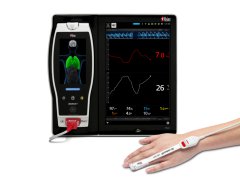- Chronic kidney disease (CKD) affects 850 million people worldwide,1 47 million in the EU,2 doubles a person’s risk for hospitalization,3 and is a leading cause of death2
- Jardiance (empagliflozin) is the first SGLT2 inhibitor to demonstrate a statistically significant reduction in all-cause hospitalizations in people with CKD vs. placebo4,5
- The approval in CKD adds to existing indications in type 2 diabetes and heart failure;6 these interconnected conditions affect over 1 billion people worldwide7
INGELHEIM, Germany & INDIANAPOLIS, Ind.--(BUSINESS WIRE)--The European Commission (EC) approved Jardiance® (empagliflozin) for the treatment of adults with chronic kidney disease (CKD),8 Boehringer Ingelheim and Eli Lilly and Company (NYSE: LLY) announced today. The approval has the potential to advance the standard of care for more than 47 million people in the EU living with CKD,2 and help relieve burden on healthcare systems by reducing the risk of all-cause hospitalization for people with CKD.5,9,10 With existing indications in type 2 diabetes and heart failure,6 empagliflozin could help manage the risks of cardio-renal-metabolic conditions, which are often interconnected. Cardio-renal-metabolic conditions affect over 1 billion people worldwide.7
“We celebrate this significant milestone in the field of chronic kidney disease. CKD is a silent killer and prevention and early detection are crucial in the general population,” said Daniel Gallego, President of European Kidney Patients’ Federation. “This new treatment option has the potential to further improve the management of cardiorenal metabolic syndrome and renal disease, offering renewed hope and improved quality of life for countless individuals living with CKD worldwide.”
The approval is based on results from EMPA-KIDNEY, the largest and broadest dedicated SGLT2 inhibitor trial in CKD to date, which showed a significant benefit of empagliflozin in reducing the relative risk of kidney disease progression or cardiovascular death by 28 percent vs. placebo in people with chronic kidney disease (HR; 0.72; 95% CI 0.64 to 0.82; P<0.000001 [absolute risk reduction 3.8%]). The trial also demonstrated a statistically significant relative risk reduction in hospitalization for any cause by 14 percent vs. placebo (HR; 0.86; 95% CI 0.78 to 0.95; p=0.0025 [absolute risk reduction 4.4%]).4,5 The overall safety data was generally consistent with previous findings, confirming the well-established safety profile of empagliflozin.4,5 CKD doubles a person’s risk for hospitalization3 and is a leading cause of death globally.2 In the EU, hospitalizations account for up to 70 percent of total healthcare costs for people with CKD.9,10
“Living with chronic kidney disease can have a drastic impact on patients and their family’s lives. CKD not only affects individuals but also society overall due to the high economic burden to healthcare systems,” said Carinne Brouillon, Head of Human Pharma, Boehringer Ingelheim. “As we deepen our knowledge in interconnected cardio-renal-metabolic conditions, we are very excited about the approval and the potential for empagliflozin to play an essential role in helping patients, their physicians and healthcare systems.”
“CKD is closely linked to other cardio-renal-metabolic conditions such as type 2 diabetes and heart failure – thus an integrated approach is vital for optimized treatment of these interconnected conditions. We look forward to continuing conversations with other regulatory bodies worldwide so that empagliflozin can be made available for as many people living with these conditions as quickly as possible,” continued Leonard Glass, M.D., F.A.C.E., senior vice president, Diabetes & Obesity Global Medical Affairs, Lilly.
# ENDS #
Please click here for ‘Notes to Editors’ and ‘References’







